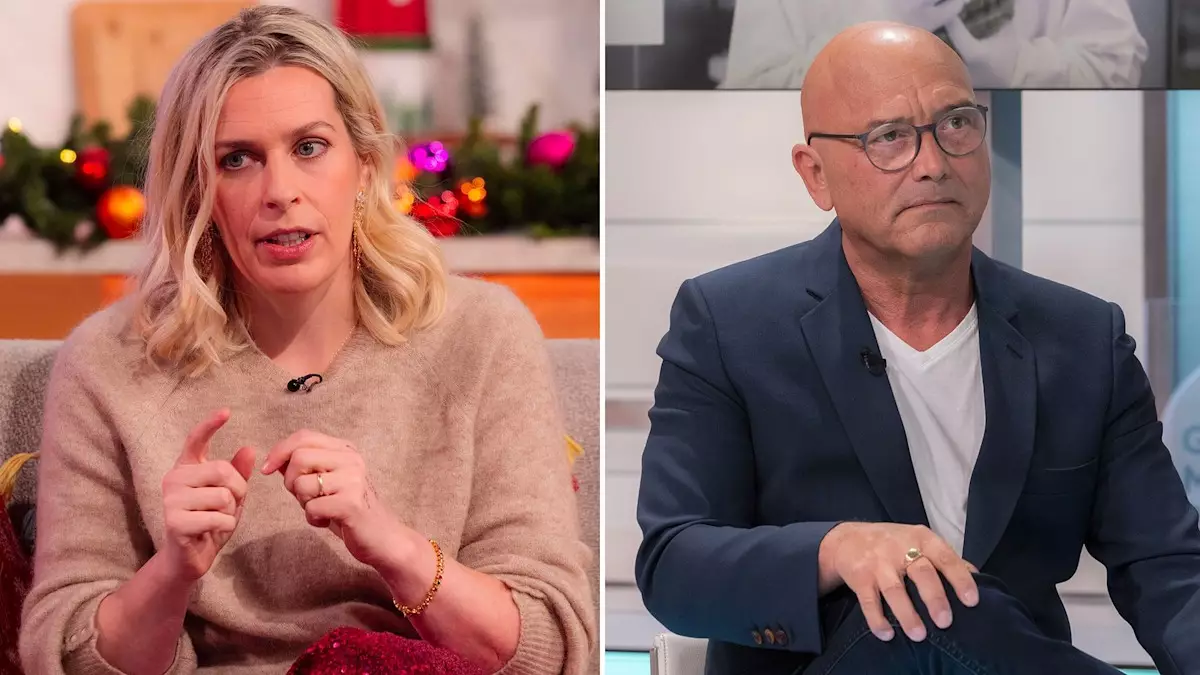When Sara Pascoe graced the set of Lorraine, the conversation took an unexpected turn as she broached the ongoing controversy surrounding her former colleague, Gregg Wallace. As a celebrated comedian and the host of the upcoming Christmas special of The Great British Sewing Bee, Pascoe is no stranger to the limelight, but this discussion delved into serious territory. Acknowledging the complaints against Wallace, which had surfaced from 13 individuals over nearly two decades of television, Sara’s commentary revealed a deeper societal concern about accountability and power dynamics in the entertainment industry.
Pascoe’s keen observation of herself and Lorraine as “middle-aged women of a certain class” was not merely a humorous quip but a pointed critique of Wallace’s recent statements. In a video that backfired spectacularly, Wallace dismissed the complaints with a blanket statement about “middle-class women of a certain age” alleging misconduct from his shows, indicating his struggles to navigate a rapidly evolving societal landscape. Such comments can highlight an undercurrent of dismissiveness toward allegations that often stem from gendered and class-based stereotypes, illustrating a gap in understanding among public figures regarding the seriousness of such claims.
What makes this situation complex is the dual nature of public personalities like Sara Pascoe and Gregg Wallace. While Pascoe uses her platform to shed light on injustices and promote awareness, Wallace’s miscalculated response serves as a reminder of how easily one can fall from grace in an era where accountability is paramount. When Lorraine Kelly pointed out that she and Pascoe could be “formidable” adversaries, it was not just a light-hearted jab but an assertion of the power wielded by women who refuse to remain silent in the face of misconduct.
The blowback Wallace faced following his controversial video highlights the consequences of miscommunication and insensitivity in public discourse. The backlash was swift, with numerous social media platforms inundated with criticisms labeling his remarks as “misogynistic.” This reaction underscores the volatility of public perception and the increased expectations for male figures to be more sensitive and mindful. Wallace’s subsequent apology, where he cited a precarious mental state and overwhelming stress, came as a recognition of his missteps, reinforcing the idea that public figures are also human, but emphasizing that does not excuse misguided comments.
This incident calls for a broader reflection on how we engage with issues of misconduct. It champions the need for empathy, understanding, and a willingness to listen, paving the way for more respectful conversations surrounding such allegations. Pascoe and Kelly’s defiance represents a growing trend among women in the industry to stand up and speak out, making it clear that those who misuse their power will no longer go unchecked. As these discussions unfold, it remains evident that the dialogue surrounding accountability is more important than ever, urging both the public and public figures to engage with sensitivity and awareness.


Leave a Reply